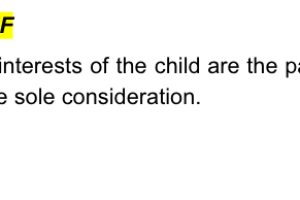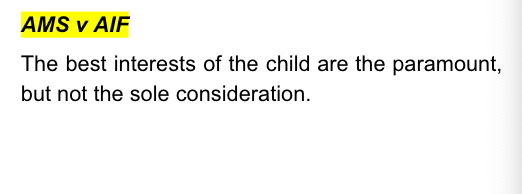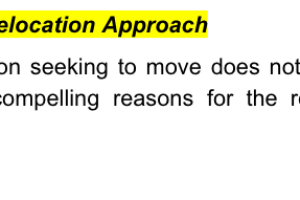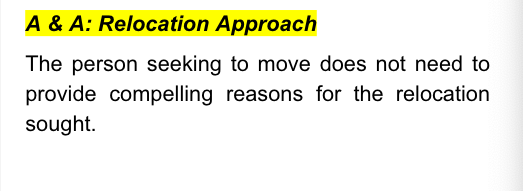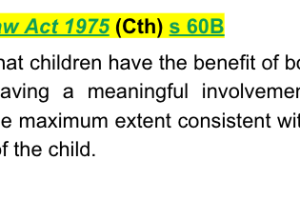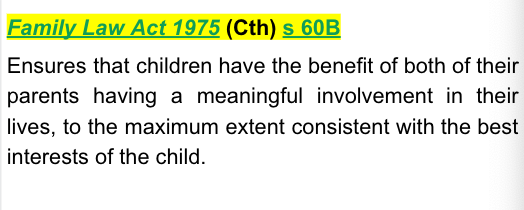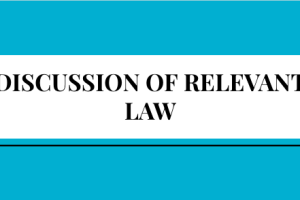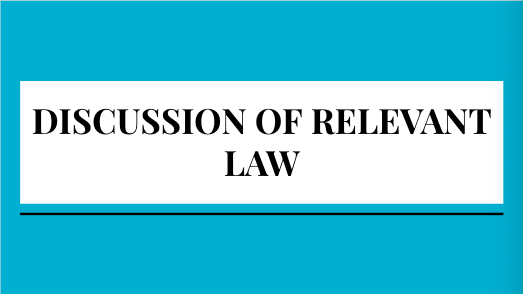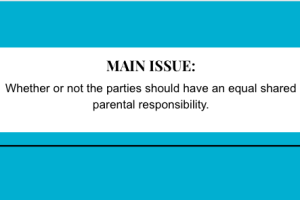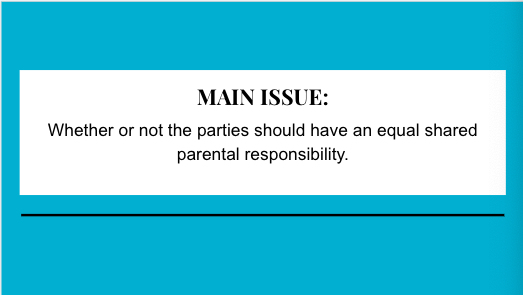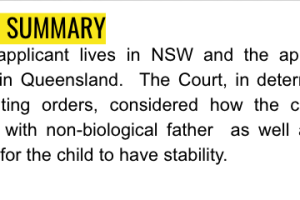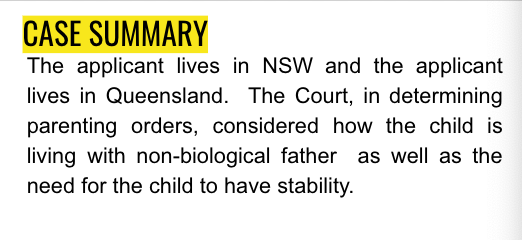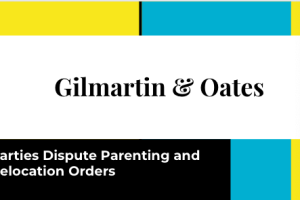- · 4626 friends
Parties Dispute Parenting and Relocation Orders

Case : Gilmartin & Oates [2022] FedCFamC2F 1553 (15 November 2022)
The applicant lives in NSW and the applicant lives in Queensland. The Court, in determining parenting orders, considered how the child is living with non-biological father as well as the need for the child to have stability.

Facts
This is a parenting matter concerning X born in 2013 (“X”) who is aged nine. X currently lives in Suburb E in the Region B with the applicant Mr Gilmartin (“the applicant”). The respondent Ms Oates (“the respondent) currently resides in Suburb F, Queensland. X spends time with the respondent mostly during school holidays.
The applicant proposes orders that if the respondent returns to live in the Region B that X live with the respondent, or otherwise that X remain in his primary care. The respondent seeks orders for X to relocate to live with her in Queensland. The applicant is aged 33 years. He is not X’s biological father but refers to himself as her psychological father. X has grown up believing the applicant is her father.
The applicant has been in a relationship with his partner Ms G (“Ms G”) since 2015. They have a son H who was born in 2021. The respondent is aged 29 years. She is X’s biological mother. She has a son from a previous relationship, J, aged ten years. J’s father, Mr K, lives in the Region B.
The parties both grew up in the Region B but met on a dating site. They were never in a relationship but were involved in a one night stand in or about early 2013. The respondent became pregnant with X around that time but says she was unable to locate the applicant until about nine months after X was born. The respondent’s case is that in or about June/July 2014 the applicant reached out to her when he saw her profile appear again on the same dating site and that she then told him he may be X’s father.
The applicant’s case is that the respondent told him he was X’s father. He says he subsequently requested a DNA test, which was arranged by the respondent and that he was shown results confirming he was X’s father. The respondent denies any such test. The parties agree that from this time the applicant began spending regular time with X as well as paying child support and that this continued until the middle of 2020.
On 4 August 2020 the respondent unilaterally moved with X to Queensland without telling the applicant. It was only when the applicant rang X’s school on 5 August 2020 that he was told that both X and J had been “unenrolled”. The applicant consequently filed his application in these proceedings on 11 August 2020 seeking X be returned to the Region B. The respondent sought orders for a DNA test.
Judge Terry on 17 August 2020 made an order that X be returned to the Region B and placed in the applicant’s care. Orders were made on 18 August 2020 for the parties to have equal shared parental responsibility and for X to spend time with the respondent in Queensland. On 28 August 2020 Judge Terry made an order for a DNA test. The DNA results received in October 2020 showed that the applicant was not X’s biological father.
X has remained in the applicant’s care since that time. The respondent has continued living in Queensland with J and has spent time with X in Queensland, mainly during school holidays. J has recently begun spending time with his father Mr K in the holidays in the Region B. J has also spent time with X whilst on these visits.
The identity of X’s biological father remains unknown. During cross-examination the respondent said the father may be a person by the name of Mr D, although she was not positive about the surname. She said he used to live in the Region B but was in the armed forces “so could be anywhere”. She said she contacted him via social media, about two and a half years ago to tell him he may be the father but that he had not responded.

Issue
Whether or not the parties should have an equal shared parental responsibility.

Applicable law
Analysis
The applicant started spending overnight time with X in a relatively short period of time after meeting her and began paying child support. It is further agreed that when X was about 18 months old his time increased to alternate weekends and seven nights in the school holidays. The respondent’s evidence was completely contradictory and as noted in the Family Report, the respondent could not offer an explanation as to why she accepted visits and child support if she doubted paternity. The police record that the parties had undergone a medical examination which showed that the applicant was the biological father. Whilst the respondent denied she said this and suggested it came from the applicant, it corroborates that one of the parties, many years before any anticipated litigation, was asserting there had been a DNA test.
Conclusion
All previous orders in relation to X, born in 2013 (“X”) are discharged. The applicant, Mr Gilmartin (“the applicant”) and the respondent, Ms Oates (“the respondent”) have equal shared parental responsibility for X. X live with the applicant.


